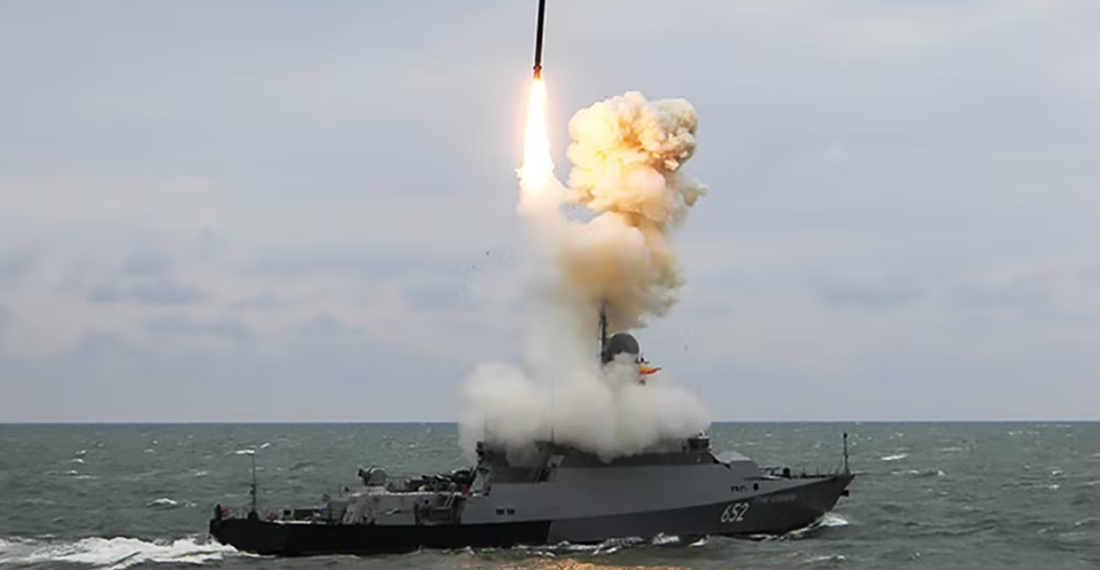Russian Kalibr cruise missiles have been destroyed in an explosion in the Crimean city of Dzhankoi late on Monday (20 March). According to the Ukrainian Ministry of Defence, they were being transported by rail at the time of the explosion.
As has become standard, Ukrainian authorities confirmed the explosions in Dzhankoi, located in the north of the Russian-occupied Crimean peninsula, but they did not claim an attack.
"The [explosions] continue the process of Russia's demilitarisation and prepares the Ukrainian peninsula of Crimea for de-occupation," the Ukrainian Defence Ministry said in a statement.
Sergei Aksenov, the head of Moscow-installed proxies in Crimea, said that Russian air defense had been working in Dzhankoi, saying that the wreckage injured one person and damaged a household and a shop. Meanwhile Igor Ivin, the head of the occupying administration in Dzhankoi, reported a drone attack.
The Kalibr missiles which have reportedly been destroyed in the explosion are designed to be launched from surface ships of the Russian Black Sea Fleet. Russian troops have regularly used Kalibr missiles to carry out attacks against Ukraine. Kalibr missiles can hit a land target more than 2,500 thousand kilometers away and reach a sea target from a distance of over 375 kilometers, according to Ukrainian military intelligence.






